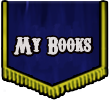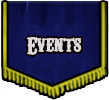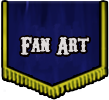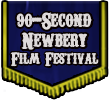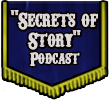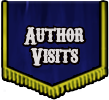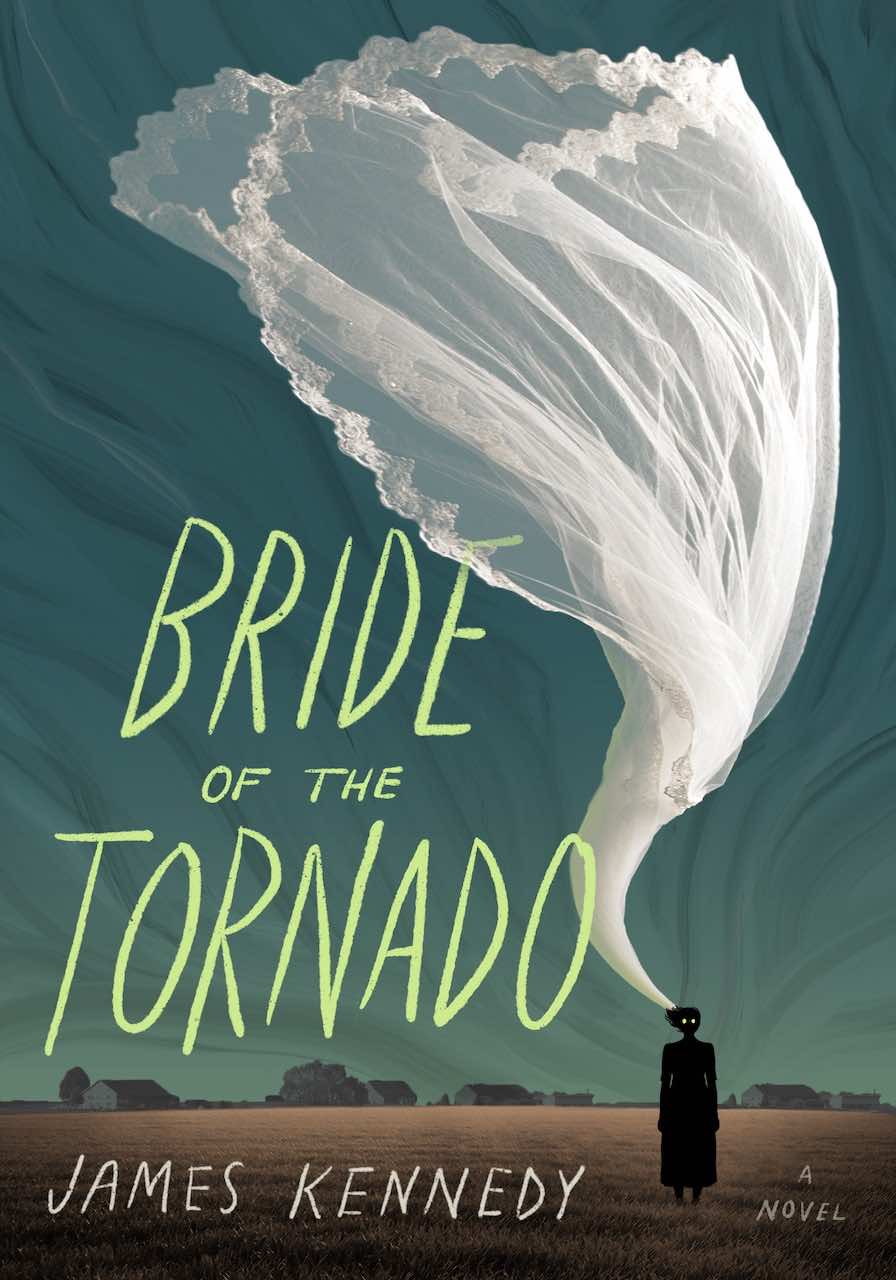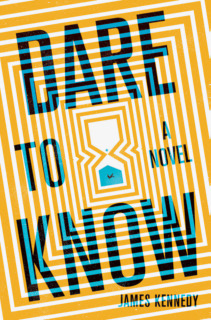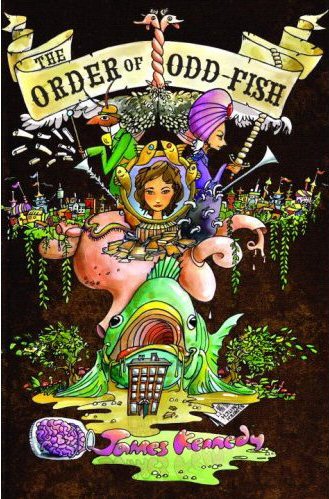An interview with Jessica Almasy
July 2, 2009
« I meet the cast of Mary Poppins Shrinky-dinks and Georgia’s ending for The Strange Ship: Part II »
 Back in May, Audible.com released the stellar audiobook for The Order of Odd-Fish, narrated by the award-winning Jessica Almasy. She was generous enough to answer some interview questions I cooked up. Below, learn about life as an actress is New York, what it’s like to be an audiobook reader, and lots more!
Back in May, Audible.com released the stellar audiobook for The Order of Odd-Fish, narrated by the award-winning Jessica Almasy. She was generous enough to answer some interview questions I cooked up. Below, learn about life as an actress is New York, what it’s like to be an audiobook reader, and lots more!
Thanks for dropping by the blog, Jessica! First off, I’m blown away your reading for the Order of Odd-Fish audiobook. Thanks for doing such a terrific job. My sister-in-law tells me that every day, as soon as my nine-year-old nephew comes home from school, he disappears up to his room for hours to listen to you read Odd-Fish. And personally, I think you’ve taken some parts that were only OK on paper, and truly made them sparkle with your performance.
First question: Who was your favorite character to perform? I liked how you did them all–particularly your Aunt Lily, Oona Looch, and Ken Kiang.
I LOVE Sir Festus. He got to speak with so much life and burstingness. There was little to no sense of restraint when he spoke—it was just full our life li l li li li li life life life.
You gave most of the inhabitants of Eldritch City various kinds of British accents. At first I was surprised, but as the book went on, it totally made sense, and I thought it was a good choice. What inspired you to make that choice?
I note the use of the word “choice” when you posit your question. Every action, or lack thereof, is a choice—and connected to one’s own volition. But. Sometimes there are intuitive forces rolling and with this book in particular I intuited that there was something magical, proper, and removed about the realm of the good “people” of Eldritch. Also, the butlers, in their proper butler get-up, cued me on the UK vibration.
How did you come to perform this audiobook in the first place? (Was it assigned to you? Were you given a choice of books to perform? I’m interested in the behind-the-scenes maneuverings of the audiobook world.)
I (Thank God) was given your book to perform. I met with one of our producers in a 3-sided glass-walled conference room (I was in the studio to record something about ADD I think?) and he had me look at the first page or so and I just started reading. We talked about the image on the cover and I likened it to the insides of my head. My producer said it was like his head as well but if it was an accurate depiction, it’d have more dead things strewn about it for him. He gave me a note about how to set apart “the ruby palace.” And, we were off. I was given a manuscript in two very large bundles and trundled it home.
Most of the books I read I am yes “assigned” or “cast” for. Just like any other acting process, the narrator is “cast” according to his or her vocal quality and stylistic approach. If you notice, a lot of deep authoritative men will read manuals or non-fiction historical texts while a young woman like myself, with a quirkly tone and an elastic maneuver repertoire for language will handle texts like yours. Or those made for Young Adult readers.  It is very much the same as cinema where certain actors are action stars and some are romantic comedy leads, et cetera.
It is very much the same as cinema where certain actors are action stars and some are romantic comedy leads, et cetera.
There is a bridge the narrative voice builds that is more like a multilaned highway, merging the narrator’s voice aka the author’s omnipotent and swallowed presence, the world and language of the characters, and the optimal reading audiences. How do you approach the text so that parents AND children can stay present and their listening be—aggressive. How do you read so that the story moves at the pace the language dictates but also convey effective shifts of character and focus. How do you do this and remain present to human conversation to steer clear of a tone that is professionally robotic.
Sometimes, like all acting processes, there are audition periods. Sometimes an author (and this has been rare for me thus far) requests to hear a sample of the actress/reader before she is cast in her book. Some authors, as you’ve mentioned you’re aware, read their own. This is often the case with more renowned authors who are perhaps encasing their very own story or experience with their voice. In an audition, I go to the studio, read a selected piece of text—or “side”—that usually has been given to me a couple of days or 24 hours prior, and the producer / recording company sends the sample off, either as an mp3 or they burn it on a disc. You usually hear in 3 – 7 days. This is sometimes the case too with multicast books, which are written specifically to be read and heard as several clearly delineated voices.
You’re an actress who has been on TV, movies, and plays. How did you get started in reading audiobooks?
I was in a play in 2004? Yeah. 2004. And it was directed by my professor in Shakespeare who taught at NYU. I auditioned, I wasn’t going to audition, but I—well it was hanging in the balance and I—decided yes, I should audition. So I go. I thought that I was prepared but. I wasn’t really prepared but I—gave a pretty good audition. I got cast. I got cast even though the writer was not so excited about me based on my audition. But my professor, who as I said was the director, took a leap of faith (I guess?) and vouched for me. Said I WAS this character and so, I got the job.
Fast forward 3 months.
We rehearse. We do the play. It goes—really well. It’s funny and I handle my role with strength and fervor. My co-actor, the other leading lead, is a man who had also studied with my director but—ten years previous to me. And he works in—Audiobooks. So. His boss comes to the show, I guess to support him and lo and behold she gives me a phone call. Says, come in and read for us. She gives me a tutorial. Like, something in one hour. I get a little lay of the sound booth. And off we go.
I did a picture book with like 17 sentences at the start.
Here I am, almost 4 years later.
I’ve recorded somewhere along the lines of 50 books or close.
In 2008 I won the Audie and I got to go celebrate that in Los Angeles.
You won an Audie award last year for your performance of Sarah Pennypacker’s Clementine. (Congratulations!) How has that affected your career as an audiobook reader?
As a result of the Audie win, I was awakened to the fact that my work was registering on a larger scale and readership. I approached my producer at that time and asked for recommendations of other people and facilities with whom I could work.  My recording up until that point had been much more boutique-y and therefore smaller books, wonderful quality but the sessions were infrequent. I thought, Oh, Wow. I could really sink my teeth into this and make some more work happen. So I a) asked for help and then b) took her up on it.
My recording up until that point had been much more boutique-y and therefore smaller books, wonderful quality but the sessions were infrequent. I thought, Oh, Wow. I could really sink my teeth into this and make some more work happen. So I a) asked for help and then b) took her up on it.
I’ve only contacted one forum from that awesome list. A friend of mine was and is working with Audible (where I encountered (Thank God!) your text) and she kept suggesting that I call them call them. So I had swapped her to my people and she dropped my name at hers. Audible asked me to send a demo, so I started making one. Meanwhile though they called me and said, Hey we’re having open auditions, can you come down.
And I said, OH YES. Of COURSE.
And I showed. And I read. And they loved it. And they started hiring me.
That was in October of 2008. I’m in the process of recording my 24th book with them. Thanks to Audible, I can now make a living as a full time artist, facilitator / teacher, and actress.
How did you become an actress?
I was born an actress.
I came out wanting to live through imagination and question the reality of any circumstance.
I had a natural affinity for lying but telling the truth.
I had a natural proclivity toward drama and fiction.
I was—really emotional. And also incredibly drawn to language and reading aloud.
When I was a child I’d, for fun, put in an audio cassette tape, blank, 90 minutes, and record myself talking into it—making up stories, radio stations, scenarios, commercials, interviews, and voices. I was frightened of collaborating and being in a group but I loved playwriting and if there was a script, I was usually very willing to lead a project.
In grammar school, we staged plays in 2nd and 8th grade that we wrote ourselves and I believe I may have suggested that.
I put on “performances” for my parents, aka a “magic” show to the soundtrack of Beverly Hills Cop on cassette and also pretend French conversations. I can just HEAR literature. So I started pursuing that.
on cassette and also pretend French conversations. I can just HEAR literature. So I started pursuing that.
I also really liked the conceptual experience of inserting myself into another dimension where I am me living truthfully but also totally released, unfettered by realism in terms of identity, intuitive and impulsive. Where I was surrendered to time coursing through me versus operating within it or around it or—against it.
I got very involved in the drama department at my high school and auditioned for and participated in all 8 of the potential musicals and plays my 4 years. I also started doing community theatre for which my, God love them, parents drove me hours and hours and hours for everywhere from 1 line to, thankfully, more substantial roles for anywhere from 10 crying kids to 1000 paying customers.
I applied to, auditioned for, and attended the NJ Governor’s School for the Arts which was an AWESOME experience for me to be exposed to a teacher from NYU and writers, painters, dancers—people who really lived—read, thought, spoke and LIVED—AS artists. People my age who were doing this.
From there it was suggested I apply to NYU. I did.
A lot of things have happened since.
Here I am.
Please tell us one insane anecdote related to your career as an actress.
 OK. One of the Things That Happened. I went to an audition at a major television Network and had forgotten that it was a big producer’s session. I went in dressed as the character, totally ready to have fun, but got a bit of a (sharp intake of breath) shock! that they were all in the room (usually, in New York, you’re auditioning for just the network’s casting people. I had already opened the door—I was in—and so I just—went for it. It turns out, they loved my work—which that day was totally raw and heart off the cuff—and so they started negotiations to get me to Los Angeles. My manager and suddenly my attorney (we met on a 3-way conference call) were negotiating the contracts. I was in then I was out. I was in, then I was out. Meanwhile, I was in Brooklyn, halfway packing my stuff in order to possibly make a flight. Certain contractual chords were not being struck so I was in holding while my manager put me to bed late that night via cell phone saying, You’re probably not going to Los Angeles, we couldn’t reach an agreement, on to the next one. My adorable Brooklyn poverty artists stayed up late with me—them watching HBO and drinking wine—me, pacing at attention. Giddy, naive, delighted with all the Unexpected.
OK. One of the Things That Happened. I went to an audition at a major television Network and had forgotten that it was a big producer’s session. I went in dressed as the character, totally ready to have fun, but got a bit of a (sharp intake of breath) shock! that they were all in the room (usually, in New York, you’re auditioning for just the network’s casting people. I had already opened the door—I was in—and so I just—went for it. It turns out, they loved my work—which that day was totally raw and heart off the cuff—and so they started negotiations to get me to Los Angeles. My manager and suddenly my attorney (we met on a 3-way conference call) were negotiating the contracts. I was in then I was out. I was in, then I was out. Meanwhile, I was in Brooklyn, halfway packing my stuff in order to possibly make a flight. Certain contractual chords were not being struck so I was in holding while my manager put me to bed late that night via cell phone saying, You’re probably not going to Los Angeles, we couldn’t reach an agreement, on to the next one. My adorable Brooklyn poverty artists stayed up late with me—them watching HBO and drinking wine—me, pacing at attention. Giddy, naive, delighted with all the Unexpected.
The next morning, I think I go to yoga.
I get a phone call.
You’re going. Your flight leaves—something ASAP.
So. I flew to Los Angeles.
In the waiting room at the super duper callback? I saw a lot of famous movie and television stars whom I had grown up watching on my television.
And we were all signing the same temporary contracts—stating that ” . . . if I get the part, I will be agreeing to this salary, this schedule etc. . . . ” It was awesome. I did my final audition in a room full of executives. Not creative writer people but, executives. The people who run the amazing businesses and account for all the checks. It was great. The casting agent had been a former waitress and she loved her job.
Who knew, right? I had never ever pictured myself there.
It turns out I offered to split my car service with a Scottish lady and her husband who was waiting with her. It turns out she and I were the two ladies up for the very same part (I don’t think I realized it). It turns out my theatre company is very big in Scotland. She got the role and I went back to Glasgow and started playing Margaret Mitchell (author of Gone With the Wind) in an original new play I co-authored called Architecting. Contexts embodied in people passing like ships in Los Angeles. Well lit but at present indecipherable for meaning nonetheless. She was lovely. And then I found it she is all OVER British television. A very funny woman. I like when people treat each other like people, just people needing a ride home and having one to lend, even if one person’s on the telly and the other person isn’t. That little encounter kind of blew my mind on the fame front. Work is good, a’ight. Just do your work, Jessica.
Contexts embodied in people passing like ships in Los Angeles. Well lit but at present indecipherable for meaning nonetheless. She was lovely. And then I found it she is all OVER British television. A very funny woman. I like when people treat each other like people, just people needing a ride home and having one to lend, even if one person’s on the telly and the other person isn’t. That little encounter kind of blew my mind on the fame front. Work is good, a’ight. Just do your work, Jessica.
You do a lot of different voices and accents in this book. How do you keep all those voices straight?
There are a lot of different means to organize and keep track of your voices. Speaking of tracks: I like to enter my sessions a little bit derailed and deranged (in a good way) a little flying off its hinges. A great sound engineer will do what we call, “flag” or “mark” all your voices and then put them in a file so that when so-and-so comes back up in chapter say 59 and you haven’t had a glance at him since chapter 6 or 8, then you can just say, Can you please play Gawldimore? and the sound enginner, with a touch of his Pro Tools goes, Oh yes, Sure thing.
The nature of this work, I try to get a sense of what the character sounds like pitch-wise and the cadence of his speech. Try to remember it in a sensory way and also treat it kind of loosely. Last book I did, I made a short list of the main characters and their vocal qulities large brushstrokes.
AKA Ashley: short, brunette, low (LA girl)
Brittany: tall, blonde, high (LA girl)
etc.
Other characters, I make a list like that but in my head: Cindy: myself, but up a bit and cozy on the outsides of words, Adam; low, understated, really mellow, etc
Sometimes, I am just articulating this as I write this, I am thinking (and I use that in the most blood and gutsy sense of the word)—I am thinking about how the character sees from his eye sockets. So as to determine how the voice comes out. Or how tall he is. This reminds me of the Balinese mask work I did with a Dutchman in college.
Practice also helps—doing pieces of text aloud before the session. Somehow I have a major block against doing this that much—there is always something so different that happens when I am in the actual recording session. The book energy takes prominence so it’s different from just trying it out on the subway etc. But yes, I would say, practice.
I think it, for me, is like a interior skull cabinet of file shuffling. The rearrangement of thin and energized sound lenses.
And above all, the power of whatever it is that is bigger than all of us where the stories come in. Creativity I am not at all in control of, the Source Happen.
Where do you record your audiobooks? Do you have a home studio, or do you do it somewhere else? Can we see a picture of the space?
I currently record my books at Recorded Books in NYC at Union Square over the Strand Bookshop (fitting) and Audible.com in Newark, NJ on the 17th floor. Some narrators have home systems. I don’t have anything like that as of yet. I like going to the sound booth very much. It is awesome.

|
There are some words in The Order of Odd-Fish that have non-obvious pronunciation, like “Ichthala.” (I approve of your pronunciation.) How do you decide the proper pronunciation for difficult cases like that?
I am glad to hear that your approval meets the Ichthala pronunciation. I had been wondering about that.
I like the sensibility of poems and I like to wake up language in ways we don’t normally approve of even, i.e., emphasis on conjunctions and prepositional phrases to wake up direction, or emphasis on certain syllables to suggest the characters are seeking out their own vocal weight displacement—as if to speak is to walking on land with a sense of still regaining one’s sea legs—oh——stehhhhhp——— stehhhhhhp. Ichthala I wanted to sound magical and I let the word dictate that want from me. So I am taking from the page a series of sound a potential in symbols and letting them press out in me and substantial and audible of course response. I am responding to your silent poetics.
The audiobook is over thirteen hours long. How long did it take for you to record it?
Ummmmmmmmmmmmmmm. A while.
No. Um. Probably ahhhhh ? 5 days? 6 days? So we do like, 5 to 7 hour sessions so—and in each session I cover about 2 hours if we’re on a roll—so yeah maybe about a week. I’ll have to check the invoice. I know it was not and is often not totally consecutive days.
How much do you read in a single sitting? A whole chapter? How many “takes” does it usually require?
Lately my game is improving and for example last night I covered 80 something pages to produce 2 hours and 10 minutes of recorded time in real time session of a little under 4 hours—having stopped for breaks and another narrator to come in and do what we call “pick ups”—which are retakes or adjustments or corrections.
So 3 and a half hours real time, 2 hours recorded time, 80 pages.
This past week I am averaging 90 pages a day at Audible in a 5 hour session.
At another studio, I usually do 3 hour sessions and maybe cover 30 pages lately on average. The nature of the lit and the pacing of the book are large determinants, more so than the studio you’re in.
So yes, we cover a couple to several chapters.
We stop or do a “take” as often as I miss a word, a sound happens, I burp, I slur, I mispronounce, I need to double check a pronunciation, the engineer’s screen freezes, the cleaning lady slams a garbage can outside, the janitor starts just vacuuming, people talk near the booth, we laugh, there is a typo (I know, gaaah!, God forbid), the meaning is not as clear as it could be when it comes out of my mouth, we hear the wrong voice for another character’s text, the executives walk in to give someone a tour, etc.
I used to stop a WAY ton a lot more when I first started back at Audible in October. Practice and a sense of attention to the work allows me to move more swiftly and effectively so there is less self-judgment (I mention this because, please remember, at Audible for example, you are always wearing your earphones which means hearing your audio as you go amplified in your head) and with less self-censorship comes more forward motion.
Same as when I’m writing. Can you relate to that?
Totally. How many times did you read the book before recording it? Do you mark it up, or take notes, using a certain method or system?
It’s amazing and so supernatural to me that I am a lit recording artist because my reading history is sporadic, erratic and so totally different from the literature I get the honor and privilege of eating and enacting. I’m like a Beckett, Henry Miller, Nietzsche, Nabokov, Dostoevsky, Wallace Stevens, Jung, Sartre kind of mind. And I am a grazer. When I read for work, however, I read the entire manuscript, front to back (I don’t necessarily read forwards on my own) and I mark in different ways at different times. Sometimes I do thorough musical-like markings for tempo, diminuendo, rising action, breath heightened, volume, character voice, etc., but in actual practice those markings aren’t the most effective way. There is, like I said, such a surrender to the story so, basically it’s that I like to plug in on my railway tracks and ride the roller coaster. I do mark the character who is speaking most so I can keep track of who is saying what when. I do circle the adverbs or adverbial expressionistic phrases that an author writes, i.e., (from last night) “‘…..’, she said on trembling breath” or (making this up) “‘Hold on,’ she snapped” or “…. (paraphrasing) “…., with a wicked laugh,” Ooo! OR my FAVORITE, recently, that there was this one character with her mouth full, so, I got to stick my fingers in my mouth when I was speaking. Hmm. Yeah. That was a fun one. Didn’t occur to me to do that even until we got in the studio.
Usually my first reading is wide brush stroke eyes, aerial recon, helicopter over the jungle. I typically only get through once because, as I had mentioned to you before, my schedule is often like:
Monday through Friday (say)
8 – 10a commute
10 – 4 record
5 – 11pm perform a play
12/1 sleep
Repeated every day, there is often little time to dawdle in the reading. And fortunately, an overlap of working projects doesn’t leave a lot of free time.
For example, this past week, I taught / facilitated a playwriting workshop at the High School Academy in NJ of which I am an alumna. And we met from 10 – 3 every day. Then I packed up and went to the studio to record from 5 – 9:15. I read and marked my sections in the car on the way to work and recorded them in piecemeal.
Life is rich and lush.
Efficiency is essential.
Gratitude is speedball tsunami-ing.

|
How many people were involved in the recording of an audiobook? Was there a “director,” or did you make all the creative decisions yourself?
The Engineer serves as the Director for the most part. Like any musician, athlete or actor there is a sense of self-directionlike a writer with an editor—you traverse (and build) the mountain and its paths, and then you report with your topographical relationships. The Engineers are versatile, agile with the equipment and attentive. They are in the booth on the other side of the glass. The Producer selects you and the material. The Editor listens and then edits, you do retakes, it gets timed with spaces between chapters etc. Another Narrator or yourself will record the titles and disc headings. Customer care and marketing will help the audience receive it. There are many many people who keep these bad boys rolling. And you the writer of course. So I would say um 4 to 5 key players. The Engineers, in my experience, are mostly engineers. A lot of the creativity that happens is between the Source of Happenstance, the Author and the Narrator. And that work is big and invisible.
So no, I don’t make “ALL” the creative decisions. And yes, I am responsible for all the decisions that I make.
What is a fascinating aspect of the audiobook recording process that is only known to initiates, that I wouldn’t have even thought to ask about, but I would be interested in knowing?
I would ask narrators about their relationship to language and if how they read changes based on the author they are reading. I think there is also a vast canyon of experience to be mined and awakened in terms of the relationship between reading the words and living through them in order to navigate and craft a reader / listener’s experience. Often a narrator is in the booth for, as I mentioned, 2 to several hours recording a story that shifts all over the place in time, location and character voice—but they are totally sedentary. Which, if you notice most acting (visible acting) is very out of the ordinary—you get to move and usually be a limited range of “things” when you are visible and acting.
I think being seated is—fascinating.
How do we adjust internally to create entire realities and how can we continue to keep traversing?
What new projects are you working on now—audiobook and otherwise?
 Thank you for asking. I just wrapped up two awesome books called Cindy Ella and Geek Charming, fairytale-like Young Adult like tales in like, modern day Los Angeleeeeees. The protagonists are slightly fish out of waters who are witty and grounded and navigating Los Angeles.
Thank you for asking. I just wrapped up two awesome books called Cindy Ella and Geek Charming, fairytale-like Young Adult like tales in like, modern day Los Angeleeeeees. The protagonists are slightly fish out of waters who are witty and grounded and navigating Los Angeles.
I love Los Angeles.
I am also doing a great Harlequin Teen Zombie Slaying book that is 440 pages. So I should go get reading. ;0
My theatre company the TEAM flies out to London on July the 5th, to return to the land of our ancestral patriarchs to devise our play about Las Vegas. I play a woman who thinks she is Joan of Arc, a reluctant minimum wage missionary on a delusion journey or a God given mission. We write together as I inferred earlier and there are 13 of us. So! If you are at the Almeida Theatre in Islington please do hunt us down. Peacefully. Of course.
Just completed that week-long seminar in devised playwriting with my high school artists (9 of them and my former AP English teacher). We decided to start a monthly group that I will facilitate called The Marathon Group. They’re into it. So is my former AP English teacher. So am I.
I am also recently joined to the NYU acting faculty and begin teaching second year acting to a ballpark of 30 students for the coming academic year.
Kicking it in New Jersey today. Going to go shoot some hoops (I’m learning now) and then do a little trip to the spa. I very much very much enjoy suburban life and driving my parents’ lovely car.
Life is wonderful. Thank you for writing what you write. And thank you for the opportunity to share my experience here with you on this electronic epistle email.
Thanks for answering my questions, Jessica. And thanks for making the Odd-Fish audiobook shine!
You are so very welcome, Mr Kennedy. It is an honor and a privilege. Be well be well. My best to your family and have a lush lush day!

